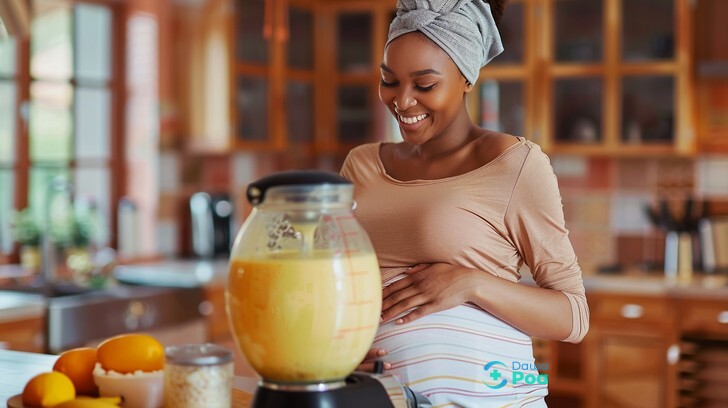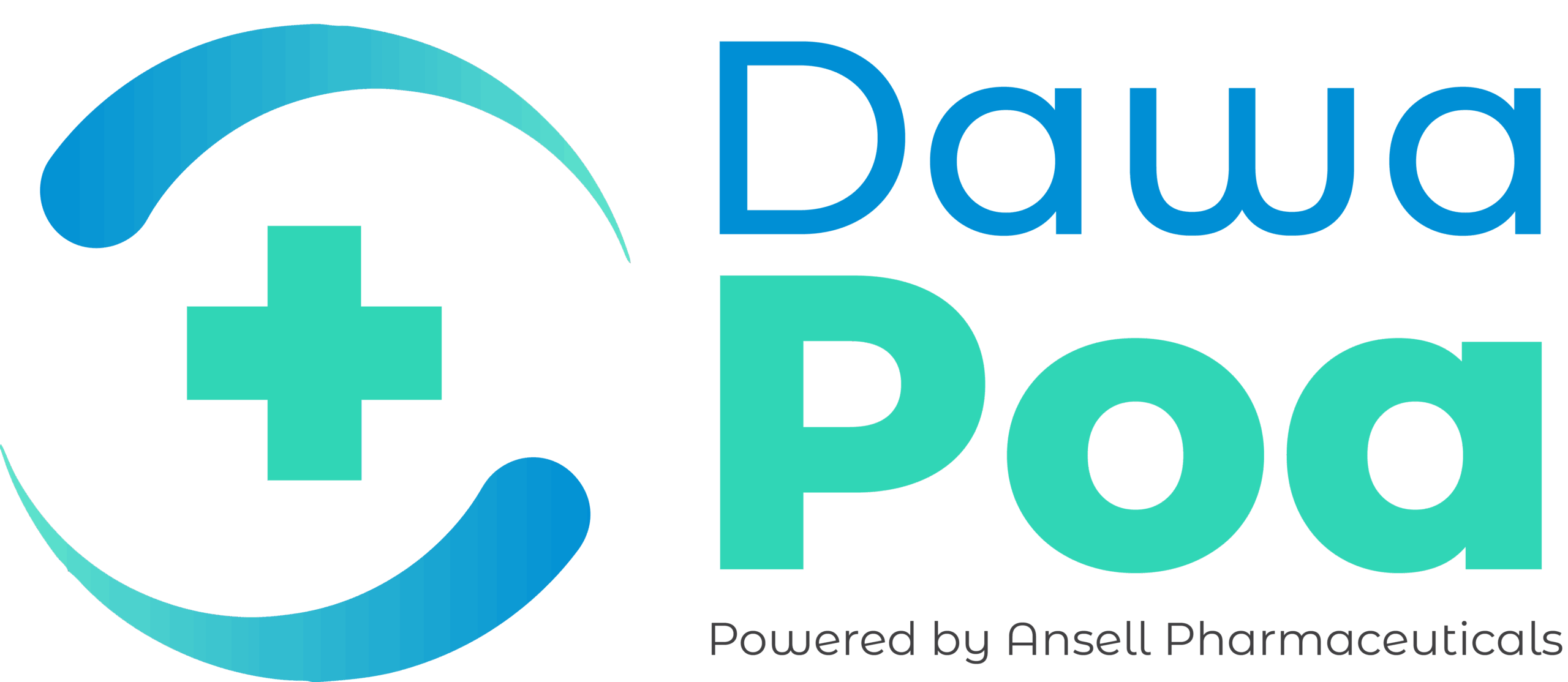Part 5: The Ultimate Guide for Conception, Pregnancy & Breastfeeding
October 28, 2025 2025-10-28 18:20Part 5: The Ultimate Guide for Conception, Pregnancy & Breastfeeding

Part 5: The Ultimate Guide for Conception, Pregnancy & Breastfeeding
Your Complete Guide to Choosing the Right Vitamins & Supplements in Kenya
Whether you’re planning to get pregnant, are currently expecting, or are nursing your little one, you’re about to embark on (or are already on) the most nutritionally demanding journey of your life.
Your body is literally building another human being from scratch, then nourishing them after birth. That’s superhero-level work!
This isn’t the time to wing it with nutrition. What you eat and supplement with directly affects your baby’s development, your own health, and your recovery.
But don’t worry—we’re going to break down exactly what you need at each stage, in the context of Kenyan healthcare, foods, and available supplements.
Let’s ensure both you and your baby have everything you need to thrive.
Part 1: Preconception – Preparing Your Body for Pregnancy

Why Preconception Nutrition Matters
Many Kenyan women don’t realise they’re pregnant until 4–6 weeks in—but by that time, critical development has already happened.
The baby’s neural tube (which becomes the brain and spinal cord) forms in the first 28 days.
This is why preparing your body BEFORE pregnancy is crucial.
Ideally, start taking supplements 3-6 months before trying to conceive.
Essential Preconception Supplements:
Folic Acid: THE Most Important Supplement
This is non-negotiable. Folic acid prevents neural tube defects (like spina bifida) by up to 70%.
What to take:
- 400-800 mcg (0.4-0.8 mg) daily
- Start at least 3 months before trying to conceive
- Continue through first trimester (and ideally the whole pregnancy)
Higher doses (4-5 mg), [ Doctor’s advice] if you:
- Have had a previous pregnancy with neural tube defects
- Have diabetes
- Take anti-epileptic medications
- Have a family history of neural tube defects
Where to get it:
- Any pharmacy in Kenya
- Free at government hospitals (sometimes)
- Brand names: Folic Acid tablets, or in prenatal multivitamins
Kenyan foods with folate:

Leafy greens (spinach, mkunde, managu), beans, lentils, oranges, fortified maize flour
Iron: Building Your Blood Supply

Pregnancy requires 50% more blood volume.
Iron builds red blood cells to carry oxygen to you and your baby.
What to take:
- 30 mg elemental iron daily while trying to conceive
- Increases to 60-120 mg during pregnancy
Why start now:
- Builds your iron stores before pregnancy depletes them
- Prevents anaemia during pregnancy
- Better for the baby’s brain development
Kenyan reality:
Iron deficiency anaemia affects about 40% of pregnant Kenyan women.
Don’t become a statistic!
Calcium + Vitamin D: Bone Health for Two
Your baby will take calcium from your bones if you don’t consume enough. Protect yourself!
What to take:
- Calcium: 1,000-1,300 mg daily
- Vitamin D: 1,000-2,000 IU daily (helps absorb calcium)
Food sources:
Milk, yogurt, mala, omena (small fish with bones), fortified foods
Omega-3 (DHA): Baby Brain Building
DHA is crucial for fetal brain and eye development. Start building stores now.
What to take:
- 200-300 mg DHA daily
- Fish oil or algae-based supplements
If you eat fish:
At least 2 servings weekly of low-mercury fish (tilapia, Mbuta, omena)
Avoid:
High-mercury risk fish (shark, swordfish, large tuna)
Iodine: Thyroid Function
Iodine is essential for your thyroid and your baby’s brain development.
Many Kenyan women are iodine-deficient.
What to take:
- 150 mcg daily (increases to 220-250 mcg during pregnancy)
- Use iodised salt
- Or take a Prenatal vitamin containing iodine
A good prenatal should contain:
- Folic acid (800 mcg)
- Iron (27-30 mg)
- Calcium (200-300 mg)
- vitamin D (600-800 IU)
- Iodine (150 mcg)
- Vitamins A, C, E, B-complex
- Zinc, copper, selenium
Pro tip:
Start taking prenatal vitamins while trying to conceive to get your body ready.

For Men Too: Conception is a Team Sport!

Guys, your nutrition affects sperm quality, which affects conception success and baby’s health.
Men trying to conceive should take:
- Zinc: 15-20 mg daily (sperm quality)
- Folic acid: 400 mcg daily (reduces chromosomal abnormalities in sperm)
- Vitamin C: 500-1,000 mg daily (sperm health, antioxidant)
- Vitamin E: 400 IU daily (sperm motility)
- Selenium: 55-100 mcg daily (testosterone and sperm production)
- Omega-3: 500-1,000 mg daily
Or take a “male fertility” multivitamin covering all these bases.
Lifestyle matters too:
Quit smoking, reduce alcohol, maintain healthy weight, manage stress.
Part 2: Pregnancy – Nourishing Two Lives
First Trimester (Weeks 1-13): Foundation Building

The first trimester is the riskiest pregnancy stage. The fetus undergoes critical development.
Its organs and systems are highly vulnerable to harmful exposures – alcohol, drugs, certain medicines, and illnesses – which can cause serious birth defects or miscarriage.
It’s also when many women feel terrible—nausea, vomiting, exhaustion, food aversions.
The irony:
Your baby needs the most nutrients when you can barely eat. Supplements become critical.
HOWEVER!

You MUST consult your healthcare provider before starting any regimen, whether it Is Vitamins, supplements, or medication.
Essential Supplements:
Prenatal Multivitamin (Continue or Start)
If you weren’t taking one before, start NOW.
This ensures you get baseline nutrients even when eating is difficult.
Take it:
- With food to reduce nausea
- Before bed, if morning sickness is bad
- With ginger tea or crackers
Folic Acid (5mg minimum)
Continue throughout pregnancy. The neural tube closes by week 6, but folic acid supports continued brain development.
Vitamin B6 (25-50 mg)
Helps with nausea and vomiting.
Many prenatal vitamins include this, or you can take it separately.
Kenyan morning sickness helpers:

Kenyan morning sickness helpers:
- Ginger tea (tangawizi)
- Small, frequent meals
- Avoiding an empty stomach
- Crackers before getting out of bed
Iron (60 mg elemental iron)
Your blood volume is increasing rapidly. Iron prevents anaemia.
If iron causes:
- Constipation: Eat more fruits, drink lots of water, take with food
- Nausea: Take before bed
- Dark stools: Normal, don’t worry
Calcium + Vitamin D
Baby’s bones are forming. Protect your own bones!
What to take:
- Calcium: 1,000-1,300 mg daily
- Vitamin D: 1,000-2,000 IU daily
Important: Don’t take calcium and iron together—they compete for absorption. Space them 2-3 hours apart.
DHA Omega-3 (300 mg)
The baby’s brain is rapidly developing. DHA is essential.
Pro tip:
If fish oil causes fishy burps or makes nausea worse, try:
- Freeze capsules before taking
- Taking with meals
- Switching to algae-based DHA
- Liquid form mixed in smoothies
Second Trimester (Weeks 14-27): The Golden Period

Morning sickness usually improves. Energy returns. You can eat again!
This is when you can really focus on nutrition and supplementation.
Continue All First first-trimester supplements, plus, if your Doctor recommends:
Iron (if anaemic)
Your blood volume continues expanding. Get tested for anaemia at your clinic visits.
Signs of anaemia
- Extreme fatigue
- Dizziness
- Shortness of breath
- Pale skin, nails, inner eyelids
- Rapid heartbeat
Calcium (Increase to 1,300 mg if not getting enough from food)
Baby’s bones are hardening. They’ll take calcium from your bones if needed.
Kenyan calcium sources:
- Milk and dairy
- Omena,
- Mkunde, Managu
- Sesame seeds (simsim)
Vitamin D:
Especially if you:
- Work indoors all day
- Live in Nairobi or the highlands (less intense sun)
- Have dark skin (needs more sun exposure for vitamin D)
- Wear fully covering clothes
Magnesium (300-400 mg)
Helps with:
- Leg cramps (common in pregnancy)
- Constipation
- Sleep quality
- Stress/anxiety
Take before bed for best results.
Probiotics
Supports digestive health and may reduce the risk of:
- Gestational diabetes
- Preeclampsia
- Vaginal infections
- Allergies in baby
What to take:
- 10-20 billion CFU daily
- Multiple strains including Lactobacillus
Vitamin C (500-1,000 mg)
Boosts iron absorption and supports immune function.
Kenyan sources:

Oranges, lemons, mangoes, guavas, tomatoes, peppers
Third Trimester (Weeks 28-40): Final Sprint

Baby is growing rapidly. You’re getting uncomfortable. Energy might be lower. Keep up with supplementation—your body is working overtime!
Continue All Previous Supplements.
Common Pregnancy Concerns and Supplement Solutions:
Gestational Diabetes
If diagnosed with gestational diabetes:
- Continue prenatal vitamin
- May need chromium (check with doctor)
- Focus on blood sugar control through diet
- Omega-3 may help with insulin sensitivity
Preeclampsia/High Blood Pressure
If at risk:
- Calcium supplementation may reduce risk
- Magnesium supports blood pressure
- Omega-3 has anti-inflammatory effects
- Close medical supervision is essential.
Anaemia
Very common in Kenyan pregnancies:
- Increase iron to 120-200 mg daily
- Take with vitamin C
- May need IV iron in severe cases
- Get tested monthly
Leg Cramps
Super common in the third trimester:
- Magnesium 400 mg before bed
- Calcium (ensure adequate intake)
- Potassium from bananas, oranges
- Stretch before bed, stay hydrated
Constipation
The pregnancy struggle is real:
- Magnesium (acts as a gentle laxative)
- Fibre from fruits, vegetables, and whole grains
- Lots of water (2-3 litres daily)
- Probiotics
- Physical activity (walking)
Heartburn
Third-trimester torture:
- Calcium carbonate (also acts as an antacid)
- Small, frequent meals
- Avoid spicy, fried foods
- Don’t lie down immediately after eating
What to AVOID During Pregnancy:

Vitamin A (Retinol) in high doses:
- Limit to 5,000-10,000 IU daily
- Avoid liver (very high in vitamin A)
- Beta-carotene (from vegetables) is safe
Vitamin E above 400 IU
Herbal supplements without doctor approval:
- Some can cause miscarriage or premature labour
- Ask before taking ANY herbal remedy
High-dose vitamin D (above 4,000 IU without medical supervision)
Iron above 200 mg daily (unless prescribed)
Conclusion: Preparing for the Healthiest Start Possible

Preparing for pregnancy isn’t just about timing — it’s about giving your body the best possible foundation.
By starting key supplements like folic acid, iron, calcium, vitamin D, omega-3, and iodine months before conception, you build reserves that protect both you and your future baby.
Small daily habits — eating nutrient-rich Kenyan foods, exercising regularly, and managing stress — make a lasting difference.
In our next article, we’ll explore the best vitamins and supplements for postpartum and breastfeeding mothers, including how to:
- Boost milk supply naturally
- Support recovery from delivery
- Strengthen immunity and energy
- Choose safe supplements for you and your baby
Disclaimer: This information is for educational purposes only. Always consult with a qualified healthcare provider before starting any supplement regimen, especially if you have existing health conditions or take medications.
Search
Categories
Recent Posts
- Part 5: The Ultimate Guide for Conception, Pregnancy & Breastfeeding
- Part 4: For Young Adults (19-35 Years): The Hustle Years
- Part 3: The Ultimate Age-by-Age Vitamin Guide – Teenagers
- Part 2: The Ultimate Age-by-Age Vitamin Guide – From 0 to 12 Years.
- Part 1: Your Complete Guide to Choosing the Right Vitamins & Supplements in Kenya




